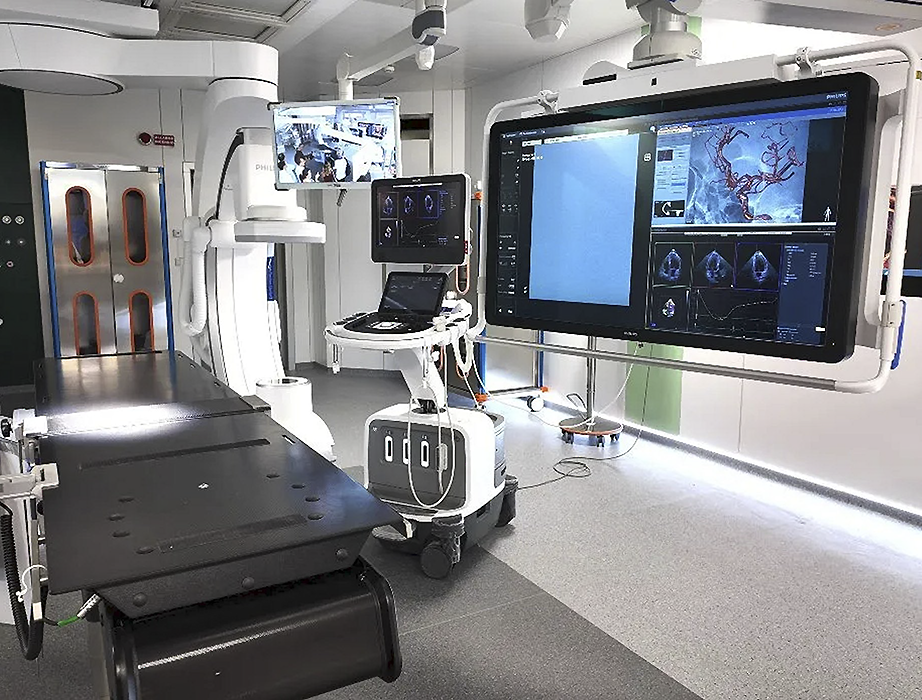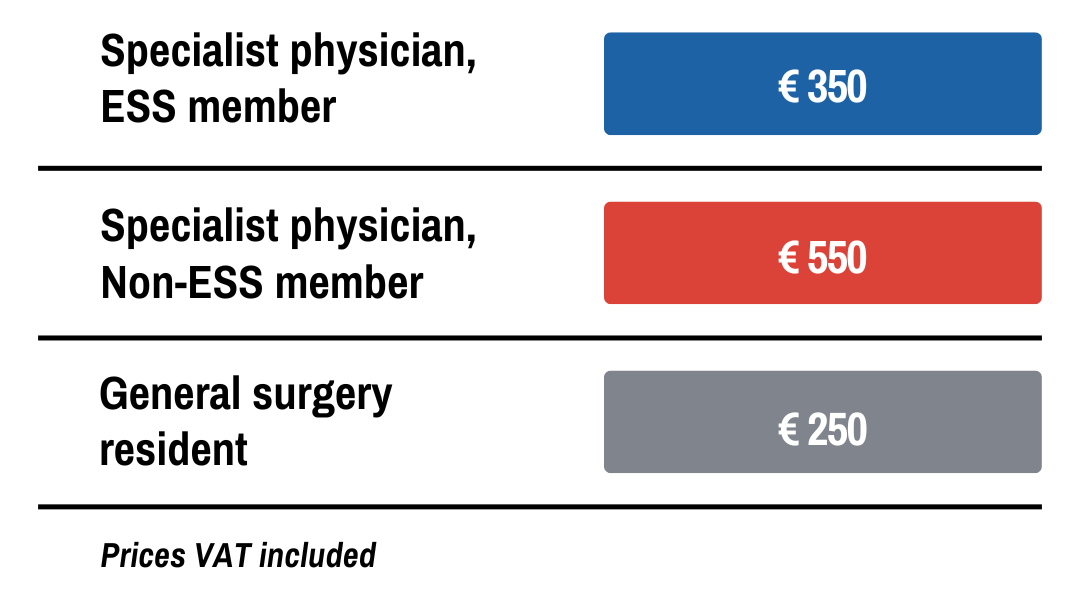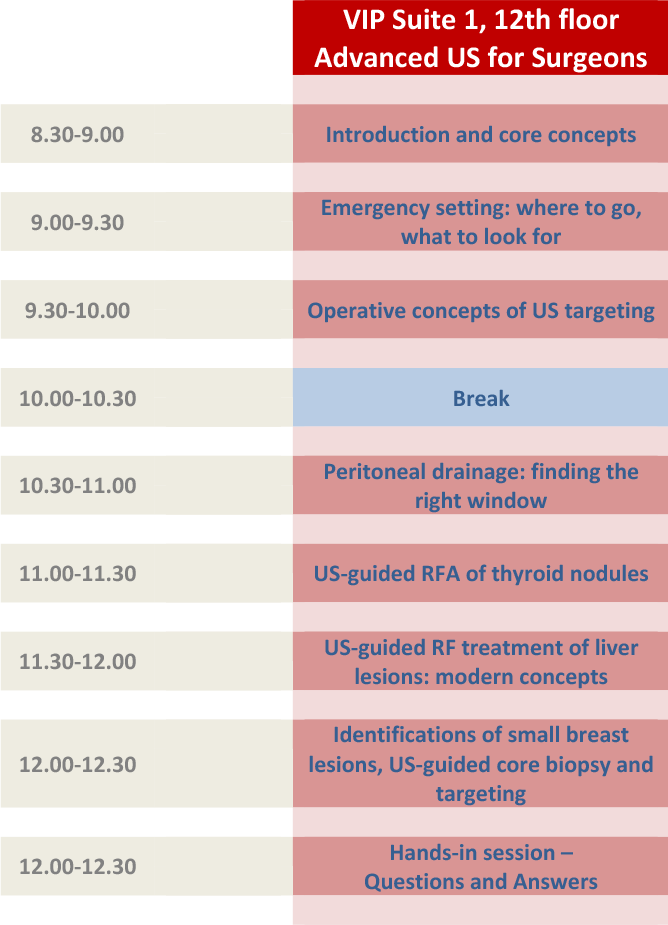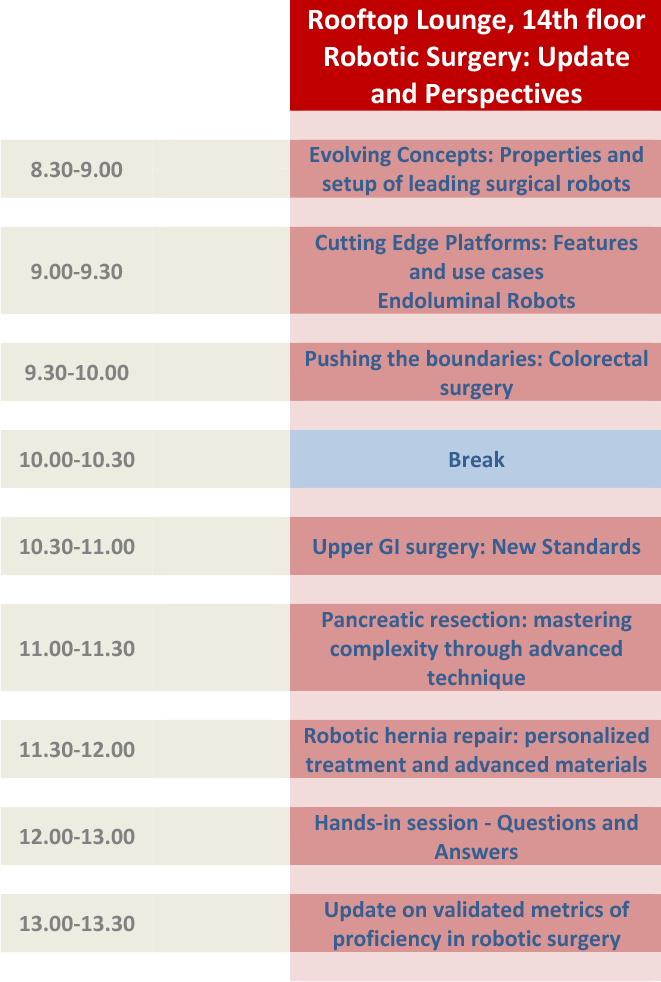Half-day post-Congress symposiums will be held on Wednesday 8 October 2025 at the Nicolaus Hotel, 12th floor Suites, Bari.
The symposiums are designed to provide innovative strategies along with practical tools and hands-on learning opportunities to enrich your professional toolkit.

Symposiums Regulations
- Participant Limit
- Each Post-Congress Workshop is limited to a maximum of 20 participants to ensure a high-quality learning experience and personalized instruction during hands-on sessions.
 Registration and Fees
Registration and Fees- The registration fee for the symposiums is:
- Registration will be confirmed only upon receipt of the full payment.
- Due to the limited number of seats, early registration is strongly recommended.
- The registration fee for the symposiums is:
- Hands-On Training Format
- Hands-on activities will be conducted in small-group sessions to allow participants to engage in practical training under close supervision.
- Symposium Certification
- At the conclusion of the symposium, each participant will receive an official certificate of attendance, endorsed by the European Society of Surgery (ESS).
- Cancellations and Refund Policy
- Any cancellation request must be submitted in writing at least 2 weeks before the workshop start date.
- Refunds may be subject to an administrative fee. No refunds will be granted for late cancellations.
- Code of Conduct
- Participants are expected to follow all safety protocols and guidelines provided by the instructors.
- Respectful behavior towards faculty, trainers, and fellow participants is mandatory.
- Any participant violating the symposium rules may be asked to leave without a refund.
- Liability Disclaimer
- The organizing committee and sponsors are not responsible for personal injuries, lost belongings, or damages incurred during the symposiums.
>> Program-at-a-glance
“Advanced Ultrasound for Surgeons” Symposium”
(Advanced application of ultrasound technology in surgical practice)
Participants will experience a program that goes beyond basic principles of US diagnostics.

The content includes:
Advanced diagnostic techniques: How to use ultrasound for complex pre-operative assessments and intra-operative guidance.
Procedural skills: Hands-on training for ultrasound-guided procedures such as biopsies and drainage.
Surgical subspecialty applications: Specific use cases of ultrasound in various surgical fields, such as emergency, thyroid, breast and hepatobiliary surgery.
Case-based discussions: Presentations and discussions of real-world surgical cases where advanced ultrasound plays a critical role in decision-making and outcomes.
Emerging technologies: Information on the latest advancements in ultrasound equipment, including portable devices, 3D imaging, and elastography.
Hands-on workshops: Practical sessions where surgeons can practice techniques under the guidance of experts.
Key features:
Practical relevance: Skills and knowledge presented herein can be immediately applied in the operating room or clinic.
Expert instruction: The audience will be taught by leading experts in both surgery and advanced ultrasound.
Networking opportunities: The symposium serves as a platform to connect with peers and exchange experiences.
Interactive learning: Interactive sessions, case studies, and hands-on training have been planned to help participants consolidating their understanding and skills.
>> DOWLOAD SCIENTIFIC PROGRAM OF:
“Advanced Ultrasound for Surgeons” Symposium"
“Robotic Surgery: Update and Perspectives” Symposium
(A comprehensive overview of current practices and future trends in robotic general surgery)
The program focuses on the most recent developments in robotic surgery and a forward-looking discussion of where the technology is headed

Current Updates
New Robotic Systems: Information on the latest surgical robot platforms and their capabilities, including advancements in haptic feedback, instrument dexterity, and ergonomics .
Clinical Applications: Presentations on applications in various general surgery subspecialties, such as colorectal, HPB and hernia surgery, with discussions on patient outcomes, operative times, and complication rates.
Comparative Analysis: Data comparing robotic-assisted procedures to traditional laparoscopic and open surgeries, focusing on key metrics of perioperative outcome.
Training and Education: Discussions on surgical training pathways for new robotic systems, including simulation, virtual reality, and proctored cases.
Future Perspectives
Artificial Intelligence (AI), Machine Learning and Telesurgery: AI integration into robotic systems for real-time decision support, automated surgical tasks, and improved surgical planning. The concept and reality of performing surgery remotely
Miniaturization: The development of smaller, more flexible robotic systems that can be used in a wider range of procedures and may be easier to move between operating rooms.



